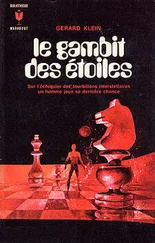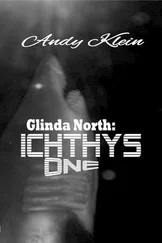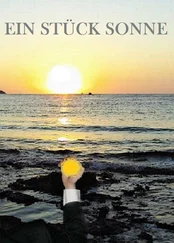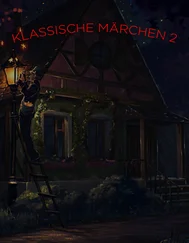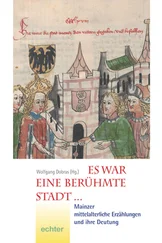Lee Klein - Jrzdvlz
Здесь есть возможность читать онлайн «Lee Klein - Jrzdvlz» весь текст электронной книги совершенно бесплатно (целиком полную версию без сокращений). В некоторых случаях можно слушать аудио, скачать через торрент в формате fb2 и присутствует краткое содержание. Город: Montclair, Год выпуска: 2017, ISBN: 2017, Издательство: Sagging Meniscus Press, Жанр: prose_magic, на английском языке. Описание произведения, (предисловие) а так же отзывы посетителей доступны на портале библиотеки ЛибКат.
- Название:Jrzdvlz
- Автор:
- Издательство:Sagging Meniscus Press
- Жанр:
- Год:2017
- Город:Montclair
- ISBN:978-1-944697-32-7
- Рейтинг книги:3 / 5. Голосов: 1
-
Избранное:Добавить в избранное
- Отзывы:
-
Ваша оценка:
- 60
- 1
- 2
- 3
- 4
- 5
Jrzdvlz: краткое содержание, описание и аннотация
Предлагаем к чтению аннотацию, описание, краткое содержание или предисловие (зависит от того, что написал сам автор книги «Jrzdvlz»). Если вы не нашли необходимую информацию о книге — напишите в комментариях, мы постараемся отыскать её.
Jrzdvlz — читать онлайн бесплатно полную книгу (весь текст) целиком
Ниже представлен текст книги, разбитый по страницам. Система сохранения места последней прочитанной страницы, позволяет с удобством читать онлайн бесплатно книгу «Jrzdvlz», без необходимости каждый раз заново искать на чём Вы остановились. Поставьте закладку, и сможете в любой момент перейти на страницу, на которой закончили чтение.
Интервал:
Закладка:
Wharton collapsed in his chair. All those years of industry had whittled his constitution. All his systems were overcome by the sight of a polite beast that watched as Braddock and Vermeule attended to Wharton and called for help.
I sprang into the air and soared out of sight.
Summer gave way to mulled scents and eerie light. Battalions of clouds heralded winter. Men raised voices and invoked the presence of a spirit more than a man. Through heavy mist, they emitted calls as though to attract an exotic bird. No rainbow lorikeet or resplendent quetzal, I crossed the river, low, like an ordinary crane, and then shot high and circled like a vulture, surveying the area for snipers, not trusting these men (stump or wisp). Coast seeming clear, I descended like a sleeper awakening from a dream of flight.
Braddock and Vermeule had not seen me cut across the water or soar above them. Only when I landed in front of them did they realize their calls had succeeded.
“Oh my,” said Vermeule.
“Lordie,” said Braddock.
“Greetings,” I said.
The men seemed unable to remember why they’d called in the first place. I waited, trying to appear deferential, hoping not to cause any more damage than I already had.
Vermeule seemed dazed, but Braddock, born in Manhattan, had spent most of his life among intimidating sights and never bowed. Advanced now in career and age, what did he have to lose, other than his life? He stepped toward me and spoke:
“We seek the help you offered. We believe you may be of service.”
Vermeule now emerged from whatever enchanted state the sight of me had caused. He added: “Yes, yes, of service, we believe you may help us achieve Wharton’s dream before he passes. Our plan is no more than a notion but perhaps you can advance it?”
Connection to their friend was stronger than fear for their lives. They believed in Wharton’s dream, shared it, and as they spoke their eyes brightened, their skin tightened, propelled by a noble cause. They were motivated by more than profit: successful execution of this project, they thought, might best secure a spot in heaven.
Wharton died in the second week of January 1909. Among many accomplishments, his obituary mentioned failed attempts at resolving Philadelphia’s typhoid epidemic with pure water imported from New Jersey, a proposal dispersed in his lifetime only in the form of pamphlets. Front-page announcement of such a plan, longstanding and unfulfilled, incited a minor fury. A plan had always been in place, conceived and advanced by Wharton himself, yet rejected by councilmen who favored costly, malfunction-prone, mechanized endeavors. The obituary also mentioned Wharton’s land and the sanctuary there and his initial wishes to will it all to Philadelphia, a desire ultimately curbed, not trusting the city to use it well.
Braddock, Vermeule, and I met late one night, days after Wharton’s death. The councilmen intended to devalue and then seize the pinelands. A land grab, Wharton’s forces called it. Around a candle, they related what they knew.
“You are part of their plans. A smear campaign,” said Braddock. Dark hollows beneath his eyes seemed affixed to his face, the uppermost part of a mask of exhaustion. The rest of him was as over-present in the world as ever. “They’ll terrorize the people into distrust of these lands and force their sale by Wharton’s heirs.”
“How can I—”
Vermeule interrupted, a stride ahead: “It was always about philanthropy, profit, increased production, improved health, better workers, and so forth, a flood of goodness for all beginning with the water beneath his lands. He discovered these lands, in a sense. The councilmen never considered their proximity and potential to serve their city. They considered the city something to manipulate to serve their interests. Pure water for the scuttling masses is not part of their portfolio of interests. Typhoid and cholera are consequences of urban life. If immigrants drawn to the outer circles of hell have a problem with the threat of illness, the councilmen believe they can return to where living is easier, or they can work harder, save more, muster resources to improve their state. Thirst for rising from poverty is a prerequisite for those who wish not to contract waterborne illness. Other arguments we discount and should not even pronounce, such as these impoverished citizens are damned, cholera and typhoid and dysentery and all other maladies are God’s gift to the righteous, as if the Lord were doing what He can, what He must do, to eliminate wretched infiltration. As clearly as you hear my voice, I have heard councilmen opine that the Lord is in fact an exterminator. The poor of the city are pests, requiring elimination, and…”
Braddock intervened: “My friend elevates his umber with such descriptions. He doesn’t have the highest regard for the poor, nor do I, but we believe their state is mutable and that we can do what we can, as executors of Wharton’s final wishes, keepers of his dream, to deliver pure water, as Wharton liked to say, the essential lubricant of commerce and industry, the most valuable natural resource, without which we all, rich and poor and everyone in-between, are merely bones in bags of skin.”
“But my use?” I said.
“To stop the councilmen’s land grab…” began Vermeule.
“First, we must define it,” said Braddock, taking over. “In their eyes, Wharton was more than a powerful industrialist. He was akin to Columbus, in that he alighted on a new world. Not just the water beneath it but its surface, all the crops, development potential, rail stations, timber, sites for prisons and military bases, and, perhaps most importantly in some minds, a potential permanent home for the poverty-stricken residents of the city, not to mention a final resting spot for its refuse.”
I considered the flickering emanations I could see around us by candlelight. I imagined the surrounding darkness produced by mountains of oily, odiferous, obscene trash, blotting out all light and life with it.
Vermeule noted my fugue and snapped his fingers above the candle. I refocused and the candle seemed to brighten.
“Wharton still has loyalists. Many owe him everything, many have their ears open, many relay information of potential interest to us.”
“What C.C. means to say is Wharton’s grease has turned many wheels.”
“And yet wrenches are now in the gears. More than that: they seek to wipe his legacy into the grave with his body. We now must stop it or at least complicate it.”
I did not quote Larner’s words that I was just a twinkle in the eye of a founding father, a mercurial hoax, a ridiculous composite lampooning various elements of almanacs and colonies, a frolicsome phantasmagoria intended to haunt the space between competing publications. I didn’t want to call into question their conspiratorial tones, the assuredness of their actions.
Braddock continued: “Stearns and Daley, they’re total swine, as Wharton liked to say. No others would seek an offensive now. Stearns particularly knows neither graciousness nor tact. Some longstanding insult must linger, some blow to his psyche, eternal hurt that can only be avenged upon the land Wharton once possessed. What matters: the dream of pure water is now reduced to an endangered drip.”
Per Braddock and Vermeule, this Stearns contradicted every commandment Franklin issued as he strove for moral perfection. Instead of imitating Christ and Socrates, Stearns emulated some undead Teutonic villain, an aristocrat of arrogance, lord of extreme self-interest. Yet it’s unfair to present him entirely as a devil thanks to obvious elegance and charm. That some seemed like citizens of another world, held to other rules, complicated hope I had for assuming an advanced state of humanity. Men like Stearns and Daley were the exception, not a model for me or anyone else. They twisted reality on its side, turning all heads until they were the only one upright. To protect the pines and achieve Wharton’s reasonable dream, I agreed to set Stearns straight.
Читать дальшеИнтервал:
Закладка:
Похожие книги на «Jrzdvlz»
Представляем Вашему вниманию похожие книги на «Jrzdvlz» списком для выбора. Мы отобрали схожую по названию и смыслу литературу в надежде предоставить читателям больше вариантов отыскать новые, интересные, ещё непрочитанные произведения.
Обсуждение, отзывы о книге «Jrzdvlz» и просто собственные мнения читателей. Оставьте ваши комментарии, напишите, что Вы думаете о произведении, его смысле или главных героях. Укажите что конкретно понравилось, а что нет, и почему Вы так считаете.

